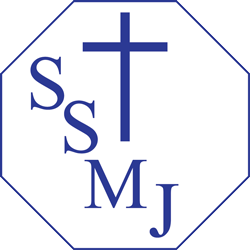Intention
At SS. Mary and John’s Primary Catholic Academy we believe that a high-quality Design and Technology education is important. Our intent is to provide children with a D.T. education that is relevant in our rapidly changing world through a broad, balanced and ambitious curriculum which prepares them for life beyond primary education. D.T. encourages children to learn, think and intervene creatively to solve problems both as individuals and as members of a team. We aim to inspire children to think independently, innovatively and develop creative, procedural and technical understanding. Our D.T. curriculum provides children with opportunities to conduct research by exploring and investigating products before designing and developing their own ideas. This is followed with the opportunity to make products and critically evaluate them. Children will be exposed to a wide range of media including textiles, food and woodwork and through this, children will develop their skills, vocabulary and resilience. We aim to, wherever possible, link work to other disciplines such as mathematics, science, engineering, computing and art. Children are encouraged to become innovators and risk-takers. We believe that our curriculum should be meaningful and relevant to the pupils we teach.
Implementation
At SS. Mary and John’s, we utilise both Projects on a Page and Kapow Primary’s Design and Technology scheme of work to build a unique curriculum based on our children’s needs. This enables pupils to meet the end of key stage attainment targets in the National Curriculum. This is taught in a sequential manner, building on prior learning and preparing for future learning.
The Design Technology National Curriculum outlines the three main stages of the design process: design, make and evaluate. Each stage of the design process is underpinned by technological knowledge which encompasses the contextual, historical and technical understanding required for each strand. These strands are:
- Design
- Make
- Evaluate
- Technical knowledge
- Cooking and nutrition
The scheme of work has a clear progression of skills and knowledge within these five strands across each year group. Attainment targets and progression of skills have been carefully mapped out to ensure they are securely met by the end of each key stage.
Through our curriculum, pupils respond to design briefs and scenarios that require consideration of the needs of others. It ensures that skills are being developed in:
- Mechanisms
- Structures
- Textiles
- Cooking and nutrition
- Electrical systems (KS2)
- Digital world (KS2)
Each key area follows the design process (design, make and evaluate) and has particular theme and focus for technical knowledge or cooking and nutrition. Our curriculum is a spiral curriculum, with key areas revisited with increasing complexity, allowing pupils to revisit and build on their previous learning.
Lessons incorporate independent tasks, paired and group work including practical hands-on, computer-based and inventive tasks.
Curriculum Links
Design and Technology is a subject that links to many other areas taught in schools. Cross-curricular outcomes are identified prior to teaching and outlined on medium term planning. The local area and school grounds are also utilised where appropriate to provide relevant opportunities to learn outside the classroom.
Impact
As children progress throughout the school they will develop a love of D.T., a deep knowledge, understanding and an appreciation of D.T. and its place within the wider world. D.T. gives pupil the opportunity to develop skills, knowledge and understanding of designing and making functional products. We feel it is vital to nurture creativity and innovation through design, and by exploring the designed and made world in which we all live and work.
The expected impact of our Design and Technology curriculum is that children will:
- Understand the functional and aesthetic properties of a range of materials and resources.
- Understand how to use and combine tools to carry out different processes for shaping, decorating and manufacturing products.
- Build and apply a repertoire of skills, knowledge and understanding to produce high quality, innovative outcomes, including models, prototypes, CAD and products to fulfil the needs of users and scenarios.
- Understand and apply the principles of healthy eating, diets and recipes, including key processes, food groups and cooking equipment.
- Have an appreciation for key individuals, inventions and events in history and of today that impact our world.
- Recognise where our decisions can impact the wider world in terms of community, social and environmental issues.
- Self-evaluate and reflect on learning at different stages and identify areas to improve.
- Meet the end of key stage expectations outlined in the National and EYFS curriculum.
Design & Technology Documents
- D & T LTP 2024-25 pdf263.4 KbSep 11th, 2024
- D & T Policy 2024 pdf1.2 MbSep 11th, 2024
- D & T progression of skills map 2024 pdf1.7 MbSep 11th, 2024
- D& T progression of skills map .doc doc133.4 KbSep 11th, 2024
- D&T Vocabulary Progression Map 2024- 2025 pdf73.0 KbSep 11th, 2024
- What does D & T look like at SSMJ pdf130.4 KbSep 11th, 2024
If you would like more information about the curriculum please contact school where we will be happy to help.

